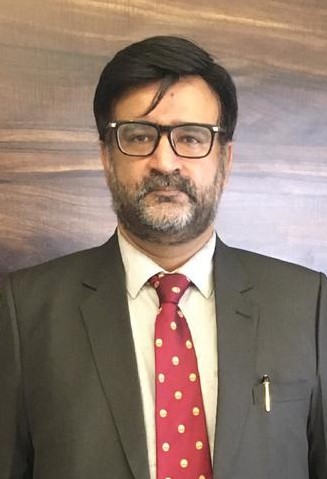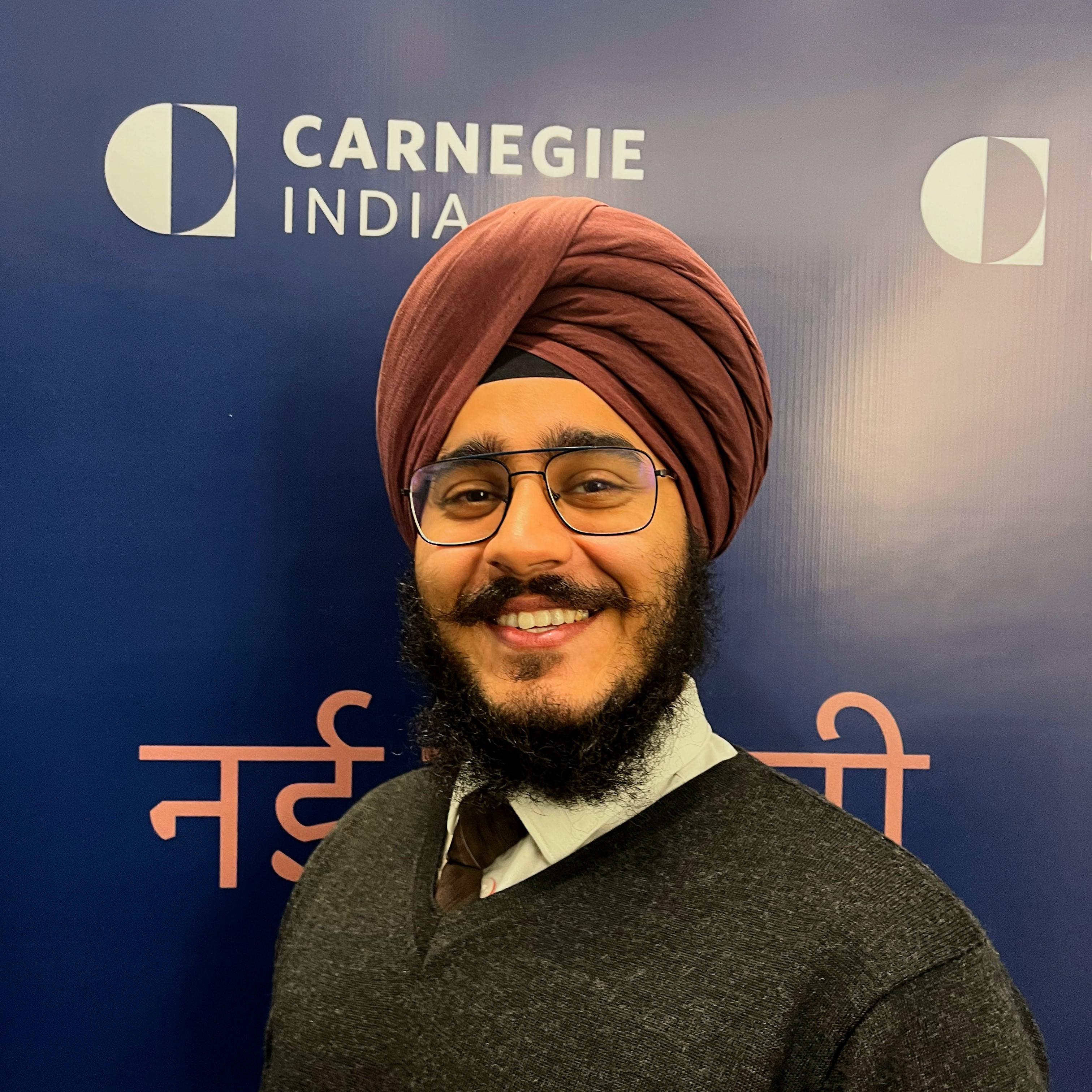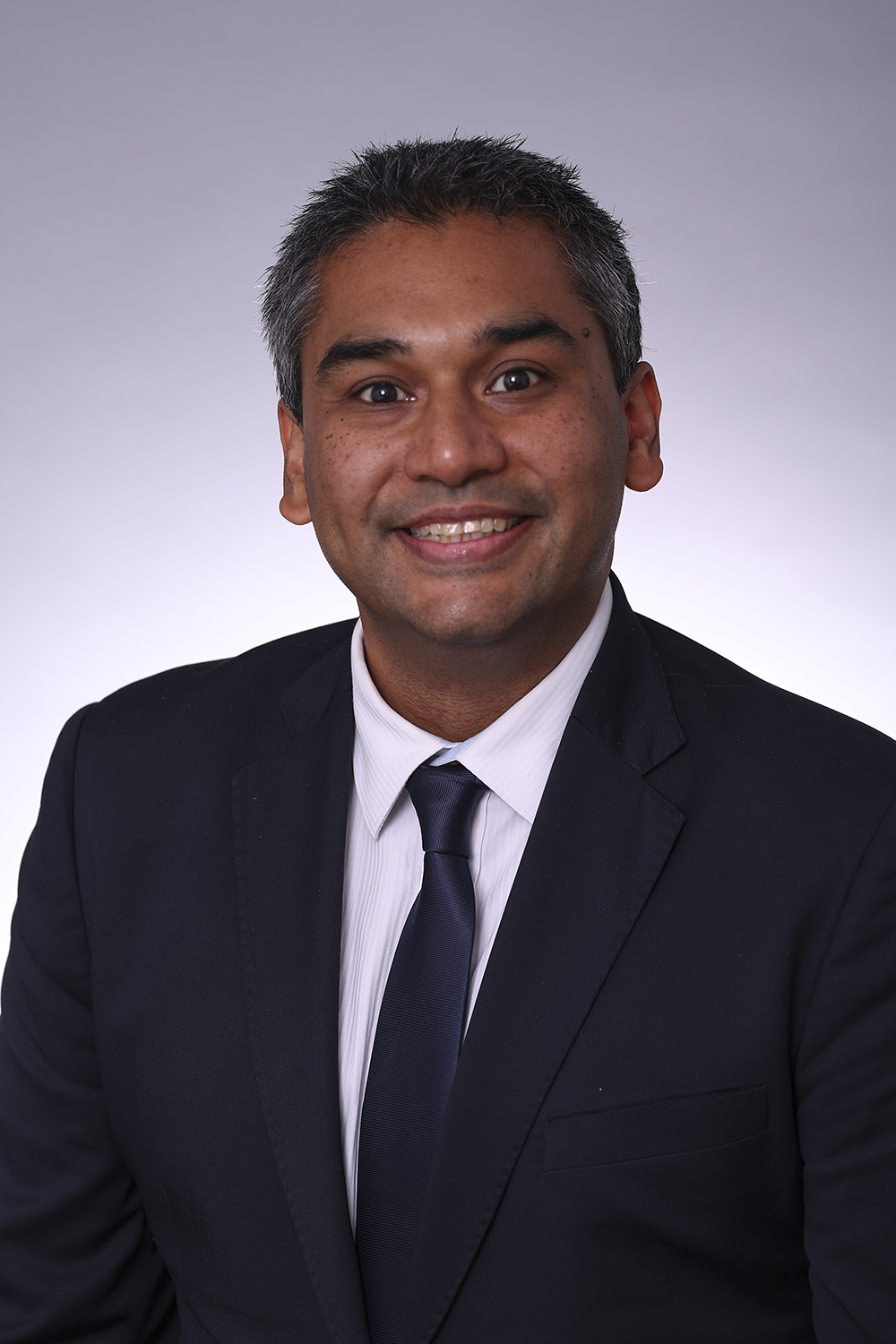A close study of five crises makes clear that Cold War logic doesn’t apply to the South Asia nuclear powers.
Moeed Yusuf, Rizwan Zeb
{
"authors": [
"Husain Haqqani"
],
"type": "legacyinthemedia",
"centerAffiliationAll": "",
"centers": [
"Carnegie Endowment for International Peace"
],
"collections": [],
"englishNewsletterAll": "",
"nonEnglishNewsletterAll": "",
"primaryCenter": "Carnegie Endowment for International Peace",
"programAffiliation": "",
"programs": [
"Russia and Eurasia"
],
"projects": [],
"regions": [
"Pakistan"
],
"topics": []
}
REQUIRED IMAGE
Source: Carnegie
Posted with permission of The Gulf News
http://www.gulfnews.com/Articles/opinion.asp?ArticleID=47180
04/11/2002
General Pervez Musharraf's decision to secure a five-year term as Pakistan's President through a referendum has generated controversy, both at home and abroad. The proposed referendum was never a part of Musharraf's roadmap to democracy, announced on Indepen-dence Day (August 14) last year.
Critics of military rule in Pakistan are citing the referendum surprise as evidence of their belief that, in the final analysis, Musharraf is not going to prove very different from his military predecessors. The political opposition in Pakistan has decided to boycott the referendum, instead of calling for a 'No' vote. Once the referendum is over, the political parties can be expected to launch a protest campaign that could create political uncertainty.
Since September 11, Musharraf has depended less on mobilising Pakistani opinion than on sympathy from the international community. Between last September and the eve of his announcement of the referendum, Musharraf avoided public appearances around the country and was more accessible to western journalists than to local media. But the general's international allies are far from enthusiastic about the referendum proposal.
The United States remains committed to supporting Musharraf in return for his support in the war in Afghanistan. It is, however, reluctant to appear to support authoritarianism or deviations from constitutional governance.
State Department formula
The State Department has come up with the formula that the constitutionality, or otherwise, of the referendum should be judged by Pakistan's courts.
The Commonwealth, on the other hand, has publicly expressed its reservations over the referendum exercise. Once the referendum is exposed as the one-sided exercise that it is meant to be, Musharraf will face more questions internationally about the legitimacy of his regime than he has bargained for.
The western nations have a stake in Pakistan's stability in view of its position as a critical ally in the war against terrorism. In the past western support for democracy in Pakistan was dismissed as "outside interference in domestic affairs".
But having accepted hundreds of million dollars in external assistance or debt rescheduling, this position would be difficult for Musharraf to adopt. In his address to the nation on April 5, Musharraf passionately argued that democracy in Pakistan need not be modelled on western experience. But most Pakistanis know the difference between military rule and democracy and their support for the latter has been consistent over the last four decades.
Musharraf's unique definition of democracy -"The people can vote as long as I remain in charge"- will only increase polarisation within Pakistani society without resolving his quest for personal legitimacy.
It will pitch the country's democratic politicians against Musharraf, distracting both from the task of dealing firmly with Islamists. One of the consequences of September 11, for Pakistan, was to cast dealing with militants as the country's first priority.
In opting for a referendum, instead of seeking election in an open contest, Musharraf has invited comparisons with Pakistan's last military ruler, General Zia ul-Haq. Ironically, Zia put Pakistan on the road of fundamentalism while General Musharraf wants to bring it back to the path of moderation.
The ideological difference between the two will be obscured by the decision to pursue a similar political strategy.
The referendum is likely to be nothing more than a symbolic exercise in legitimising military rule. Boycotted by major national political parties, it will certainly not lay the foundations of a self-sustaining Pakistani democracy. Zia's referendum in 1984 was also marred by a low turnout and a boycott by mainstream national political parties.
From all indications, history will soon repeat itself. People vote to change the status quo or to elect people who will represent their interests. In a referendum endorsing a military ruler there is no such incentive. Regardless of whether people vote in the referendum, the general already occupies the presidency.
Musharraf's promise of fundamental reforms has so far been the only source of legitimacy for his government. The general has promised that the focus of these reforms would be to establish a functioning democracy besides providing the framework for a market-based economy.
The decision to take the same route as former military rulers undermines the reformist character of General Musharraf's regime. He will unfortunately be seen as part of the Ayub-Yahya-Zia tradition of military rulers after the referendum, instead of coming from another mould.
Idea of referendum
The idea of a referendum with no candidates is integral to the notion of "guided" or "controlled democracy" too often practiced in Pakistan since 1958. But Pakistan's society and the global environment have undergone major changes since Ayub Khan's 1958 military takeover.
Then, Pakistan had not seen a general election despite 11 years of independence. Politics was the arena of a limited number of players, most of whom operated out of drawing rooms in the big cities. The media's size and impact were also limited.
By the time General Zia ul-Haq imposed martial law in 1977, political populism had taken root. Zia dealt with Zulfikar Ali Bhutto's popularity by seeking the support of anti-Bhutto politicians. He also did not have to contend with a vibrant media - something that the present regime must accept and deal with.
The last 15 years have seen a large number of Pakistanis participating in the political process. The mystique of power, including that of the intelligence agencies, has ended. Civilians belonging to many political and religious groups have shared power through numerous coalitions in the past decade, increasing their exposure to state power.
Four general elections have increased the people's awareness of their relevance to the process of governing. Above all, a free and vibrant media refuses to allow the government to function secretly and arbitrarily on the basis of self-defined criteria.
To try and rule Pakistan through recipes of 1958 or 1977 simply will not work. For the last four decades the country has alternated between military rule and imperfect democracy. The time has come to break that cycle.
Pakistan's previous civilian political leaders have often lacked vision. The military leaders, on the other hand, seem to believe in a divine right to rule the country. They do not want to share power with the "uneducated masses" and their chosen leaders.
The military's desire to control the political process and to prop up artificial leaders, instead of dealing with those genuinely elected by the people, has undermined the capacity of political institutions to evolve.
Every few years, military leaders rewrite the constitution - ostensibly to rescue democracy from the excesses of its incompetent practitioners. In the process, the military has spawned civilian 'leaders'? who, like Nawaz Sharif, have only compounded the country's problems rather than solve them.
A faction of the Pakistan Muslim League and some smaller political parties have allied themselves with Musharraf, hoping to now be chosen as the military's new civilian partners.
The general expects to secure his power in the stage-managed referendum and then will try to guide the nation's destiny with the help of a new set of pre-selected Nawaz Sharifs. These efforts to rewrite the rules and impose a new leadership are unlikely to result in anything better than what it yielded in the past.
Ready to confront
The mainstream political and religious parties seem ready to confront Musharraf's plans for controlled democracy. Pakistan's civilians now want their fair share of power and are unwilling to follow the game plans of previous military rulers.
Instead of accepting a stage-managed referendum, the U.S. and other western nations with leverage with Musharraf should ask him to abide by the Supreme Court ruling to hold free and fair general elections by October.
The poll should be open to all Pakistani political parties and leaders. If he wants to continue as President, Musharraf should compete as an equal against his domestic rivals in a contest subject to the country's constitution.
Only a genuine election will confer legitimacy on Musharraf, enabling him to regain his mantle of a reformer rather than a run-of-the mill Pakistani military ruler.
Carnegie does not take institutional positions on public policy issues; the views represented herein are those of the author(s) and do not necessarily reflect the views of Carnegie, its staff, or its trustees.
A close study of five crises makes clear that Cold War logic doesn’t apply to the South Asia nuclear powers.

Moeed Yusuf, Rizwan Zeb
The India-Pakistan conflict that played out between May 6 and May 10, 2025, offers several military lessons. This article presents key takeaways from Operation Sindoor and breaks down how India’s preparations shaped the outcome and what more is needed to strengthen future readiness.

Dinakar Peri
This book examines the impact of cross-border violence on communities living along the Line of Control and the International Border in Jammu and Kashmir, India.



Deep Pal, Surya Valliappan Krishna, Saheb Singh Chadha
On May 7, 2025, between 1:05 and 1:30 a.m. (IST), airstrikes carried out by the Indian Air Force hit nine locations inside Pakistan and Pakistan occupied Kashmir (PoK). It was codenamed Operation Sindoor.

Rudra Chaudhuri
Trade between India and Pakistan has been suspended since 2019. Yet an agreement on this issue could help facilitate broader cooperation.

Nikita Singla